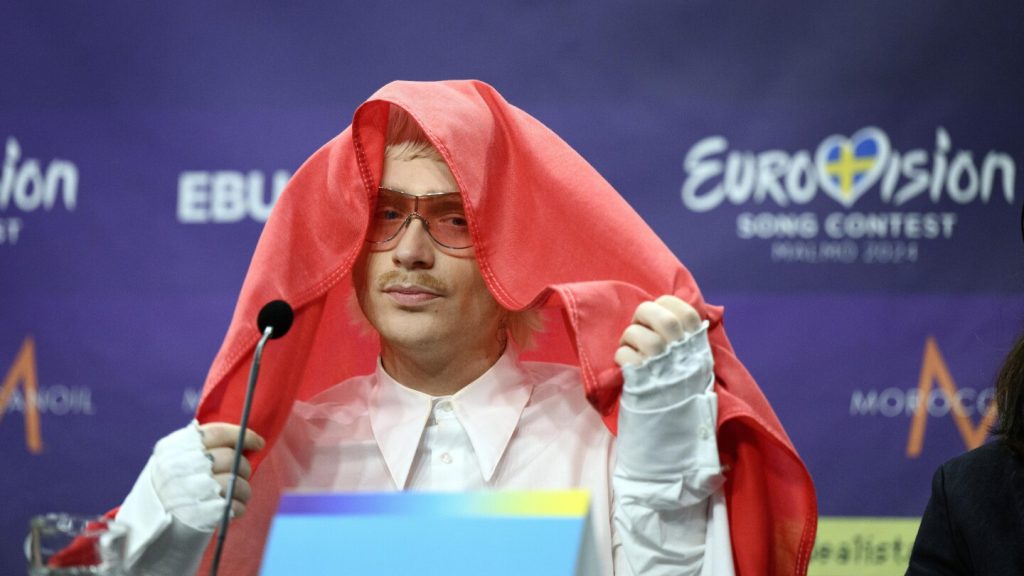The Eurovision Song Contest is facing controversy as the Netherlands’ contestant, Klein, was expelled from the competition just hours before the final due to a backstage incident that is under investigation by the Swedish police. This decision was made as a result of a complaint by a female member of the production crew, and Klein’s failure to perform at two dress rehearsals. While there were rumors that the incident was related to Israel’s delegation, organizers clarified that it did not involve any other performer or delegation member. The Dutch broadcaster AVROTOS expressed shock at the disqualification and called it disproportionate.
Amidst this drama, the Eurovision Song Contest in Malmo, Sweden is also facing political tensions, with Israel at the center of a storm. Pro-Palestinian demonstrators have been calling for Israel to be excluded from the competition due to its actions in the war in the Gaza Strip. Large protests have taken place in Malmo and Finland, with demands for a boycott of Israel and a cease-fire in the ongoing conflict. Despite these challenges, 25 acts are set to perform in the final, with an estimated 180 million viewers around the world tuning in to watch the competition.
This year’s Eurovision entries range from emotional to eccentric, showcasing a variety of styles and themes. Favorites include Swiss singer Nemo and Croatia’s Baby Lasagna, with their unique approaches to music and performance. While the contest is known for its campy and kitschy aspects, it also addresses important political and social issues. Some entries, like Israel’s song “Hurricane,” have sparked controversy for their perceived political statements. Despite the pressure and abuse faced by the contestants online, they are focused on delivering their performances and representing their countries.
Protests against Israel’s participation continue to be a prominent issue at the Eurovision Song Contest, with many arguing that the country should not be allowed to compete while the conflict in Gaza persists. Israeli singer Eden Golan has faced backlash for her performance, but has also received support from her country’s Prime Minister. Despite the divisive nature of the competition, former Eurovision champion Loreen emphasized the importance of love and unity in times of strife. The competing musicians are urged to focus on the music and not let negativity overshadow the message of solidarity that Eurovision represents.
As the final of the Eurovision Song Contest approaches, the tension and controversy surrounding the event continue to unfold. While some view it as a platform for showcasing music and talent from around the world, others see it as a battleground for political and social discourse. Despite the challenges faced by contestants and organizers, the show must go on, with performers gearing up to deliver their best on the international stage. As the world watches, the Eurovision Song Contest remains a symbol of unity and diversity, even in the face of adversity and disagreement.


